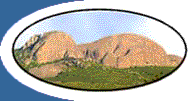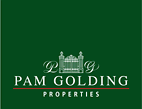MOST people see wine tasting as a very clinical process. This may be true to a certain extent if one sees how serious some people appear when looking at, nosing and tasting wines.
The wine evaluation process does need to be orderly since it is a science in the real sense of the word, however it can still be enjoyed casually, not only for the seriously experienced assessors with long noses and grey hair.
One of the most difficult aspects of winetasting is to know or use the right word when describing the experience of the flavour or the palate of a wine.
This is most probably one of the reasons why senseless descriptions like “the wine is nice “or “the mellowness lingers on the palate” are often used.
In order to overcome this problem, a glossary of terms or even a colourful rainbow illustration of flavours can be utilised, but it will remain only words if you have not sensed the descriptions yourself.
By walking in your garden or cooking in your kitchen you can build your own portfolio of descriptions.
The sources of wine flavours are threefold namely originating from the grapes used for winemaking, the fermentation process or additives during the process like wood.
Observe and smell the red roses, pink geraniums or white carnations in your flower garden or pinch the lemon leaf on your lemon tree.
Pinch herbs like thyme, fennel, oreganum and mint before tasting the difference between a green and overripe banana. If you concentrate in your kitchen you will recognise the aroma of burning toast before adding a meat extract like Bovril or Marmite.
If you have a sweet tooth, smell the different types of jams like gooseberry, green figs, blackberry, loganberry, apricot or peach.
Have you recently made a cocktail consisting of sweet melon, water melon, pear, litchis and cherries? Try to remember your sensory experiences.
Can you remember the smell and taste of the black pepper on your Norwegian salmon, the green or red pepper in the salad or caramel taste of the crème brulee?
If you enjoy wine evaluation and would like to learn more, the University of Stellenbosch now offers the Certificate in Wine Evaluation Course which is presented throughout South Africa in conjunction with Getsmarter.
This is a ten-week course presented via distance learning combined with face-to-face contact sessions in Cape Town. This course is suitable for both those involved in the wine industry as well as those with a general interest in wine. Contact Candice on 021-683-3633 or Candice@getsmarter.co.za. Alternatively, visit www. getsmarter.co.za.


